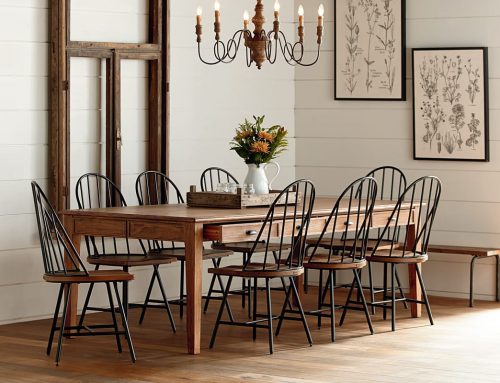There’s no doubt that depression in America, and for that matter much of the westernized world, is at an all-time high. There’s also no doubt that there’s not one specific cause for this. Depending on who you are and what your beliefs are, you could point to a myriad of causes: breakdown of family and social structures, increased feelings of loneliness, mass media distribution of tragic news, the internet in general, the economy, the environmental crisis, medications and even affluence (yes, most of America lives in relative affluence) all contribute to the increasing cases of depression. But that ongoing depressive cycle is also linked to the rise of mass consumerism. It may be a chicken and egg scenario, and we are not professional psychiatrists (but we consult with UCLA’s Psychiatry Department Chair, Dr. Peter Whybrow). However, exploring the relationship between consumerism and depression and how we can all work to break that cycle is at the core of what we do. And it’s the topic of today’s article on the blog.
At a Basic Level, the Industrial Consumer Machine Replaces Relationships with “Stuff”
Any mental health professional will tell you that interpersonal relationships and connections are one of the greatest tools in the fight against depression. However, over the last fifty or so years, the industrial consumer machine has infiltrated the minds and hearts of Americans to lead them to the belief that they can fulfill emotional needs with “stuff.” The very phrase “retail therapy” implies this (and as we’ve noted is a fully misleading term). Had a bad day at work? Don’t talk it out with a friend or confident over a relaxing cup of coffee or meal. Stop at the store on the way home and buy yourself a new purse or set of cufflinks. Unhappy in your romantic relationship? The answer is a day spent with your credit card at your favorite store. Feeling blue overall? The more you log onto Amazon.com and delight yourself with packages of “stuff” arriving at your door, the better you will feel.
The problem, of course, is that relationships with “stuff” are not the same as relationships with people and they can’t fill the emotional voids and holes that often lead to depression. So how do you stop this from happening? The first step is acknowledging that you’re doing it if you are. Then, slowly, work on spending more time with people. Cultivate the relationships that you do have, and that includes your relationship with yourself. Consumerism makes you more lonelier, not less. Choosing to tackle the harder effort of interacting with people more intimately can only lead to good things even if it’s hard work.
Buy More. Earn More So That You Can Buy More. Create More Stress Earning More. Become More Depressed Because of Stress.
Really, that sub-headline says it all, doesn’t it? If you timeline the rise of industrial consumerism, you’ll note that not only does it lead to a belief that emotional voids can be filled with “stuff” – which obviously makes you want more “stuff” – but it also obviously coincides with the rise of the idea of “keeping up with the Joneses.” This idea of defining social status (and therefore happiness) by the accumulation of stuff as compared to other people’s stuff is a top layer of the depression funnel in several ways. Firstly, we have to back-up further than the sub-headline above. The important thing to realize about “keeping up with the Joneses” is that it is an unattainable goal. No matter how much “stuff” you acquire, somebody will always have more. And, of course, in the end none of that materialism will make you happy anyway. But the process of trying to acquire that “stuff” can contribute to depression in other ways. Because it is an unattainable goal based on a never-ending supply of “stuff,” you need to earn more and more and more money to buy the stuff that you’re hoping will lead to happiness and satisfaction. The more money you have to earn, the more time you spend at work. Unless you are a person who finds great fulfillment from your work (in which case you are likely not making much money), the more time you spend at work means the less time you spend doing things that relax you and bring you joy. Add to that the stress of always needing more money to buy the “things” that you believe will make you happy and you have a perfect recipe for spiraling into a vat of depression. The solution? Identify what really makes you happy. Then figure out how to spend time doing that instead of buying more “stuff.” Easier said than done, we know. But we also know that if you even take a baby-step in this direction it won’t be long before you see that it’s actually much easier to do than you think.
Also Remember: The “keeping up with the Joneses” mentality can be most insidious when it’s applied to the parenting concept of wanting your kids to have more than you did. It’s dangerous for parents and kids.
The Meaningful Life is Not About Stuff: But That May Not Be What Your Mind Conjures
At the end of the day, there are two kinds of depression: clinical and societal. Addictive consumerism doesn’t necessarily lead to clinical depression, but we’d argue it’s among the primary causes of societal depression. What causes societal depression, where an entire culture is ill, more than a widespread sense of not having a purpose or meaning in life, of being alone and of wondering what the point of everything is? These feelings are the very gears that mass consumerism relies on to perpetuate itself. It’s no wonder that in a world increasingly filling up with stuff and decreasingly filling up with relationships and interactions, the number of individuals walking a path into a darker place is simultaneously increasing.
What can you do about it? If you’re already righting your path and beginning to let go of addictive consumerism and finding happiness, then the most important thing that you can do is to reach out to others and help them learn the same thing. But if you’re on the other side, and this article is resonating with you because you’re beginning to understand the role that mass consumerism plays in your own emotions, the challenge will be more difficult. The good news is that “knowing is half the battle.” The further good news is that you now know that you are not alone. There is an entire community out there of people who feel the same frustrations and lack of meaning that you might. You’re not solitary, or broken, or a freak. You’re living in a society that’s promoting a way of living that can’t make you happy. It will be a journey to let go of that and find your satisfaction, but you can do it. And when you do, you’ll find a whole new world of joy open up to you.
Did we miss a reason why consumerism is feeding into the depression epidemic? Tell us about it on the social media channels below.
Facebook | Twitter | Instagram | Tumblr | Pinterest | Google+ | Medium
Photo Credit: Amy Messere via Flickr





